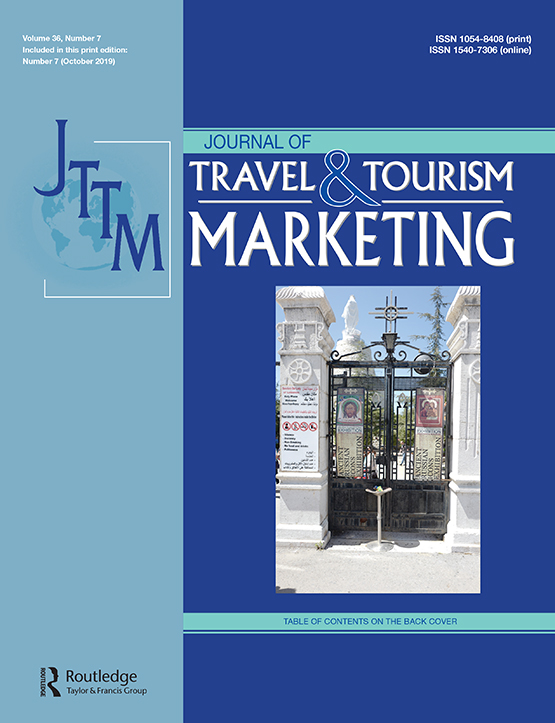害怕错过和复仇旅行:情境信任、体验风险和目的地认知形象的作用
IF 9
2区 管理学
Q1 HOSPITALITY, LEISURE, SPORT & TOURISM
引用次数: 0
摘要
摘要新型冠状病毒感染症(covid -19)引发了人们对错过的恐惧(FOMO)和封锁生活的单调感,导致人们的旅行欲望激增。这导致了一种被称为“复仇旅行”的新现象的出现。本研究通过对724份报复性旅行问卷的调查来检验这一新奇现象,并使用结构方程模型对其进行分析。结果表明,感知情境信任和感知体验风险在FOMO与复仇旅游的关系中起部分中介作用,而目的地认知形象在感知体验风险与复仇旅游的关系中起调节作用,突出了这种行为的影响因素。关键词:害怕错过covid -19大流行大流行后新常态感知情境信任感知体验风险认知图像目的地图像复仇旅游披露声明作者未报告潜在的利益冲突。数据可用性声明根据合理的要求,可以提供数据。本文章由计算机程序翻译,如有差异,请以英文原文为准。
Fear of missing out and revenge travelling: the role of contextual trust, experiential risk, and cognitive image of destination
ABSTRACTCOVID-19 caused a surge in people’s desire to travel due to their fear of missing out (FOMO) and monotony of lockdown life. This led to the emergence of a new phenomenon called “revenge travelling.” The present study examines this novel phenomenon using a survey of 724 responses on revenge travelling, which was analyzed using structural equation modeling. The results revealed that perceived contextual trust and perceived experiential risk partially mediate the relationship between FOMO and revenge travelling, while cognitive image of destination moderate the relationship between perceived experiential risk and revenge travelling, highlighting the factors that contribute to this behavior.KEYWORDS: Fear of missing outFOMOCOVID-19pandemicpost-pandemicnew normalperceived contextual trusttrustperceived experiential riskriskcognitive imagedestination imagerevenge travellingtourism Disclosure statementNo potential conflict of interest was reported by the author(s).Data availability statementData can be available upon reasonable request.
求助全文
通过发布文献求助,成功后即可免费获取论文全文。
去求助
来源期刊

Journal of Travel & Tourism Marketing
HOSPITALITY, LEISURE, SPORT & TOURISM-
CiteScore
13.50
自引率
8.30%
发文量
25
期刊介绍:
The Journal of Travel & Tourism Marketing (JTTM) is a valuable platform for researchers and managers in the travel and tourism industry. It facilitates the exchange of ideas and provides updates on the latest developments in tourism. JTTM accepts submissions on various topics including marketing management practices, applied research studies, critical reviews, advancements in tourism marketing technologies, and the impact of business and government policies on travel and tourism marketing.
 求助内容:
求助内容: 应助结果提醒方式:
应助结果提醒方式:


